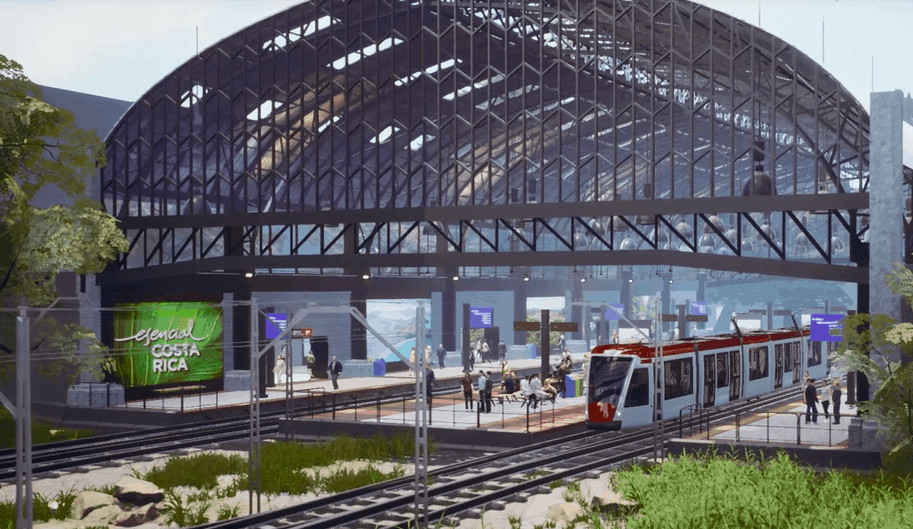Costa Rica has rolled out plans for a new electric train system aimed at easing traffic snarls in the Greater Metropolitan Area. President Rodrigo Chaves presented the project, marking a shift from earlier proposals that he called wasteful and poorly planned. The initiative, dubbed TIBI, focuses on two key routes to connect San José with Paraíso in Cartago and Alajuela via Heredia.
Chaves took aim at the previous administration’s $1.5 billion scheme, which he said would have drained public funds while favoring select contractors with ties to real estate like Parque Viva and the El Coyol free trade zone.
He described it as full of empty promises that left commuters stuck in gridlock for years. Instead, this version comes with feasibility studies, a rational design, and secured funding, he noted during the announcement.
The setup spans 52 kilometers of double-track railway, with 26 new platforms, upgrades to three existing stations in Atlántico, Pacífico, and Heredia, plus a new one in Alajuela. It also includes two parking areas in Alajuela and Paraíso, a maintenance facility in Alajuela, 29 new railway bridges, and rehabs for two others, including the Virilla bridge. An operational control center rounds out the infrastructure.
Trains will run daily from 4 a.m. to 11 p.m., hitting every 10 minutes during peak morning hours and stretching to 15 minutes on weekends and holidays. The fleet calls for 28 modern electric units, and the system ties in with bus routes, bike paths, and pedestrian crossings for smoother transfers. With 30 stations total, it promises to cut down travel times across the central valley.
Funding totals $800 million, drawn from the Central American Bank for Economic Integration (CABEI), the European Investment Bank (EIB), and the Green Climate Fund (GCF), with backing from the European Union under its Global Gateway strategy.
CABEI provides $550 million, split evenly between GCF resources carried over from the prior government and fresh EIB loans. The plan skips subsidies, aiming for self-sustaining operations.
This move scraps extensions to Belén, El Coyol, and Ciruelas that were part of the old blueprint, trimming costs and scope. Chaves stressed that the streamlined approach avoids the overruns and delays that plagued past efforts, putting real progress on track for everyday users.
The project still needs legislative green lights for the loans, but with EU Commissioner Jozef Síkela on hand for the reveal, international support looks solid. If approved, construction could start soon, though timelines remain under wraps.
Debates over urban transport have simmered in Costa Rica for decades, with taxi groups and lawmakers pushing back against ride-hailing apps while calling for better public options. This train fits into broader goals of greener mobility, cutting emissions in a country that prides itself on sustainability.
As elections loom, other candidates like Natalia Díaz have floated ideas to expand train services further, including weekend runs on existing lines. For now, Chaves’ team positions this as a practical fix for the frustrations of daily commutes.






